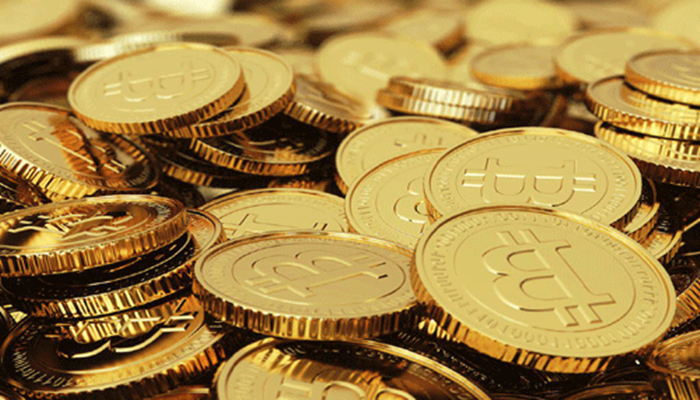
The Nigerian Deposit Insurance Corporation (NDIC) has again warned Nigerians against the risk involved in trading with digital currencies not issued by the Central Bank of Nigeria (CBN).
The Director Research, Policy and International Relations, NDIC, Mohammed Umar, said this at the weekend in Kano while speaking at a two-day annual workshop for Business Editors and Finance Correspondents on the theme “Financial Disruption of Digital Currency and Its Consequences on the Banking and Deposit Insurance System” organised by the corporation.
He explained that the mandate of the corporation does not include providing insurance cover to risks associated with trading with digital currencies not issued by the CBN.
“The financial regulatory authorities are not playing catch up on the digital currency race in Nigeria. There is no country in the world that allows its citizens to use digital currencies as money not issued by the Central Bank,” Mr. Umar stated.
“No Central Bank will accept digital currency as a substitute for its national currency or part of its monetary system, when it is not able to control it.
“Nigerians must understand that adequate notice has been issued by all financial sector regulatory authorities, namely Central Bank of Nigeria, CBN, and Nigerian Deposit Insurance Corporation, NDIC, to warn Nigerians who want to trade in bitcoins as gamblers.
“They can only do so at their own risk. The CBN cannot say anyone cannot trade with it and NDIC will not insure any trading in any currency not issued by the CBN.”
At the moment, the director said an inter-agency committee, involving the NDIC, Ministry of Justice, Economic and Financial Crimes Commission, EFCC, Nigeria Police, Department of State Services, DSS and other relevant agencies, had been established to, ”sanitise the system.”
He said the committee, with its secretariat at the CBN, would closely monitor the activities of digital money operators to ensure Nigerians were not exposed to unnecessary risks.
“If you can buy a bitcoin, nobody will stop you. It is at your own risk. A bitcoin is not covered by the CBN rules, and NDIC will not insure it. We have consistently warned Nigerians that anyone who trades in bitcoin does so at his own risk,” Mr. Umar said.
On electronic fraud in the financial system, he said a framework to help monitor and regulate the problem was being developed by the Bankers’ Committee of the CBN and would soon become operational.
He said when operational, anyone found to have been involved in any fraud scheme, like using IT systems to transfer money from other customers’ accounts illegally, would have their account delisted from the banking system.
He said that depending on the seriousness of the crime committed, immediately the offender is identified, his or her account would be closed, and the owner would not be allowed to operate it for a period, up to five years.
He said findings by the NDIC research team revealed that most of the insider abuses perpetrated by banks were by contract staff, who were given sensitive duty schedules involving direct dealings with customers’ money and records.
In a memo issued in July 2017 to all deposit money banks, switches, money operators and payment terminals on Framework on Watch-list for the Nigerian Financial System, the Director of Banking & Payment Department, Dipo Fatokun, said the framework would soon come into operation.
The watch-list is a financial database of bank customers identified by the bank verification numbers, BVNs, who have been involved in confirmed fraudulent activities.
The fraudulent activities include forgery, compromise, complicity, fraudulent duplicate enrolment or any infraction without monetary amount involved.
To check the increasing incidences of fraud and other unethical practices and engender public confidence in the financial system, approved sanctions include complete de-listing of individuals on the watch-lists from the banking system or financial records.
For banks, which maintain business relations with individuals on the watch-list, the CBN said, the account holder shall be prohibited from all e-channels, including automated teller machines ATMs; point of sale, POS, internet banking, mobile banking.
On the other hand, where a bank continues banking relationship with watch-listed individuals, the bank would be liable for any loss suffered by any party.
To resolve some of the issues not directly on its oversight, but more with the telecommunication companies, the CBN said a joint technical committee was working with the Nigerian Communications Commission, NCC, to identify and proffer solutions to fraud related crimes.
Again, the bank said it was working with other related regulatory agencies in the financial sector to set up the Nigerian electronic fraud forum to discuss matters relating to electronic fraud in the financial system.






